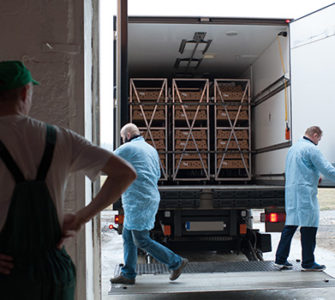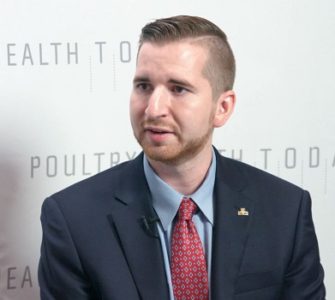Bugs should be a key focus of biosecurity in controlling turkey disease
Producers should play close attention to insect control in their poultry houses to avoid cases of turkey coronavirus enteritis (TCE).
That’s the view of Eric Orozco, DVM, a veterinarian at Butterball in North Carolina, based on his recent experiences with the disease.
The most recent outbreak he dealt with began in June 2021, with previous breaks in 2018-19, he told Poultry Health Today. The disease was detected in 8-week-old finishers on two farms through routine polymerase chain reaction testing.
“This is a first break for me in this company, but from what other vets have told me, it kind of comes in waves,” he said. “The last break was 3 years ago and then…maybe 3 years before.
“It’s commonly in the summer. I don’t know if maybe the weather plays a role — with the humidity in North Carolina, especially with increasing populations of flies — and also the condition of the litter.”
A tricky disease to control
Any age of birds can be susceptible to TCE, he said, although younger birds tend to suffer the most. Clinical signs include flushing, poor weight gain and low feed conversion. However, in the most recent case, there was also high mortality with severe dehydration and birds that were not eating.
The disease can “jump” between houses and even to farms a number of miles away, Orozco continued. This led to his belief that flies are the most important vector of the coronavirus, which causes the condition — although darkling beetles are another potential insect source of the spread.
Minimizing risks
With no treatment for TCE, the only recourse for producers is to treat the main symptoms of diarrhea and dehydration, while doubling-down on biosecurity.
At Butterball, every flock got new litter, and equipment was sanitized. The human side of biosecurity was also prioritized in response to the outbreak, with staff assigned to either breeders or finishers and with designated routes to keep them apart.
“As long as we can keep the breeder house clean or negative of TCE, then the number of positive farms will start to decrease,” he said.
In advice to producers, Orozco returned to the issue of probable vectors. Fly control is “maybe the most important” factor to consider, he said, alongside management of the beetles and controlling movements between farms. Increased downtime for the growers is also something to consider, he added.
Posted on December 15, 2022

















